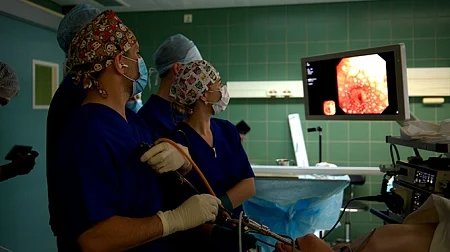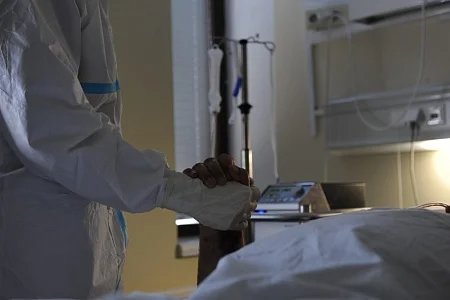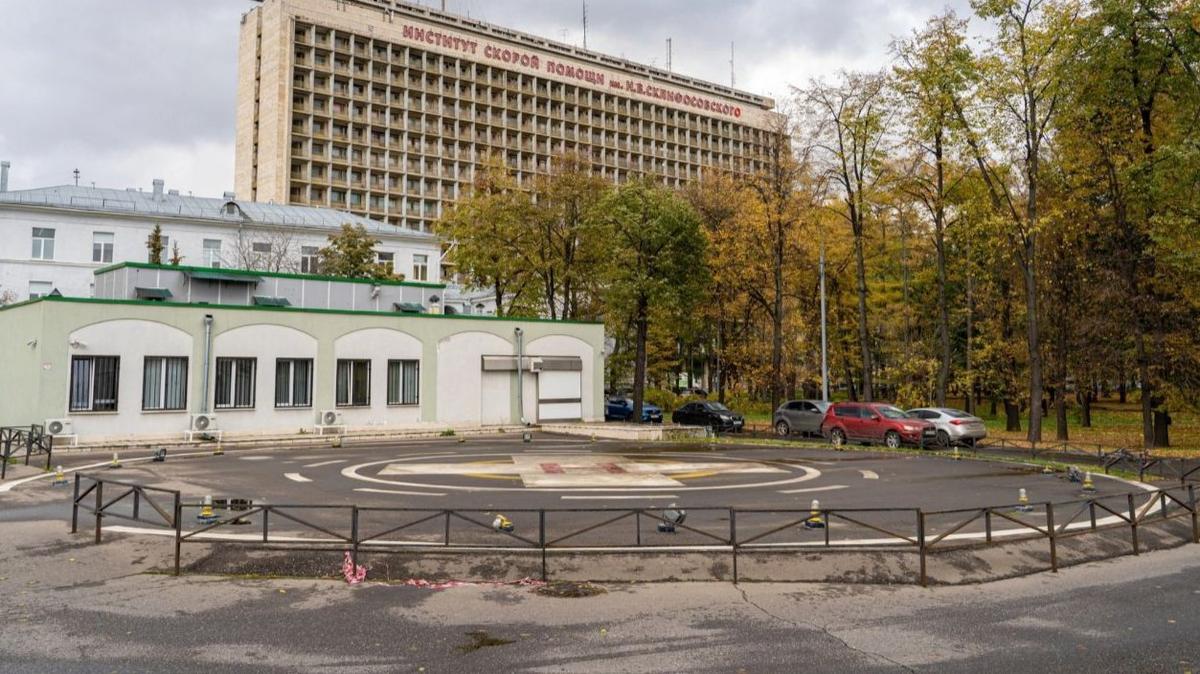A few days ago, Novaya Gazeta. Europe called on its readers to share their experience regarding the availability of foreign-manufactured drugs to Russian citizens and doctors, detailing how it changed after the start of the war on 24 February. Novaya Gazeta. Europe is preparing an overview of the stories we’ve received and verified.
Roman Kalashnik, who works as a transplant surgeon at the Sklifosovsky Institute of Emergency Medicine — one of Russia’s leading medical organisations — has shared a detailed description of the problems he and his colleagues are now facing in his letter to Novaya Gazeta. Europe. Kalashnik’s letter is being published in full with his consent.
I’ve worked as a transplant surgeon for the last five years. I started in a fairly large regional centre in Voronezh — my wife and I moved to Moscow last year as I began my new job at the Department of Kidney and Pancreas Transplants at the Sklifosovsky Institute. Difficulties with obtaining medical drugs in Russia are the same both in the provinces and in the capital — the situation turned for the worse after the start of the “special military operation.”
I refrained from mentioning the difficulties of acquiring medical equipment necessary to meet modern-day transplantation standards deliberately in my letter as I wished to zero in on the situation with the drugs.
As I started work in 2017-18, I noticed a fairly liberal use of the basic immunosuppressive therapy medicines, such as Prograf and Advagraf, both produced by the Dutch company Astellas Pharma Europe.
As Prograf was becoming less available, it was replaced by the Russian-made drugs, such as Priluxid and Tacrolimus. The number of adverse side effects appearing when taking these Russian-made substances has increased.
Being a short-acting drug, Prograf reaches the target concentration of its active substance in the blood faster, providing an adequate immunosuppressive effect and reducing the risk of organ rejection shortly after transplantation.

Photo: sklif.mos.ru
As the access to Prograf became limited in 2018, my department decided to switch to Advagraf due to the smaller number of side effects compared to the available Russian-produced drugs.
It takes Advagraf-receiving patients more time to reach the target concentration of the drug’s acting agent in their blood after the transplant, which leads to additional difficulties in treatment — however, these aren’t as significant as the possible side effects after taking the Russian-made drugs.
We faced a deficit of the aforementioned drugs as the “special military operation” began,
and our patients’ relatives had to get them in another hospital — the Nephrological Centre at Moscow’s Hospital № 52 — and transfer them to our department. That lasted for a month and a half. This happened in the past occasionally, but didn’t last as long.
There’s no real shortage of basic immunosuppressive therapy drugs at the Institute now. However, that doesn’t apply to drugs for induction immunosuppressive therapy, which are required for more efficient early immune suppression in patients after repeated kidney transplants, or in patients with high immunological risks.
Atgam, made by Pfizer, and Thymoglobulin, made by a Dutch company called Genzyme Europe B.V. — have simply been unavailable at the Institute for over a month already, and we have no idea as to whether we’ll be able to ever have them again. Thus, we can only operate on patients who never had a kidney transplant before, as well as on patients with low immunological risks.

Photo: sklif.mos.ru
The rules governing donor kidney waiting lists used by the international transplantation community say that priority should be given to patients waiting for their second transplant, due to the high probability of a positive direct cross-match between donor’s blood cells and recipient’s serum — an absolute contraindication for performing a kidney transplant, as the donor organ may be rejected.
I’ve also heard alarming news from my colleagues who work for organ donation coordination centres.
Their work allows us to perform organ transplants from postmortem donors, and requires the use of special cold storage solutions to ensure organs are preserved outside the donor's body.
As of today, the only solution of the kind registered and approved for use in Russia is Custodiol, which is made by Germany's Dr. Franz Kohler Chemie GmbH. Despite the active use of other solutions (such as Euro-Collins, Celsior, and the University of Wisconsin solution) across the globe — some are even superior to Custodiol in their effectiveness, as confirmed by clinical trials — there are no alternatives to this particular drug in Russia.
We’re now buying Custodiol in advance, as the delivery time has gone up significantly after the start of the "special military operation.” Besides, as it’s impossible to predict what is going to happen in the future, there is no guarantee that this solution will be available to Russian organ donation and transplantation centres in the future.
The absence of organ preservation solutions may wipe out organ transplants for terminal-stage patients with chronic diseases completely. It may also completely ruin the work of Russia’s organ donation and transplantation centres by leaving them with no choice but to use insufficiently researched, low-quality, "import substituted" solutions.
In connection with the information regarding the alleged shortage of medicines in the kidney transplantation department of the Sklifosovsky Research Institute being published in the media, the Institute would like to announce an official contradiction of these rumours.
“All drugs for basic immunosuppressive therapy, including immunoglobulins, are available at the Institute in sufficient quantities. There are no difficulties in the supply and provision of drugs. Dr. Roman Kalashnik, whose letter is cited by Novaya Gazeta. Europe, only works on weekends and at night and does not have complete knowledge on the availability of drugs.
Drugs with the international non-proprietary name Tacrolimus, including those with the trade names Prograf and Advagraf, are available in sufficient quantities, and there are currently no difficulties with their supply. The Institute has enough drugs for basic immunosuppressive therapy to last over 6 months. A total of 342 packages were given to patients in the first half of 2022. Moreover, our patients are provided with this type of therapy for life.
The Institute purchased Atgam and Thymoglobulin Lyof (INN Antithymocyte Immunoglobulin) at the annual requirement in January.
There are also no issues regarding the Custodiol drug, we have enough of it for over 6 months, too.
The Department of Kidney Transplantation at the Sklifosovsky Research Institute for Emergency Medicine is Russia’s largest facility of this kind in terms of surgeries performed. Our specialists performed 131 kidney transplants in the first half of 2022, which is 15% more than the same period last year and is as much as made in the whole year of 2015. This should be considered a high figure not only for Russian, but also for many foreign centres.
It is worth noting that we have highly qualified specialists working for us. Our department and our operating unit are provided with state-of-the-art equipment and all materials and medicines necessary both for performing most complex surgeries and for maintaining patient care in the pre- and post-transplantation periods,” says Sergey Petrikov, Director of the N. V. Sklifosovsky Research Institute for Emergency Medicine.
Join us in rebuilding Novaya Gazeta Europe
The Russian government has banned independent media. We were forced to leave our country in order to keep doing our job, telling our readers about what is going on Russia, Ukraine and Europe.
We will continue fighting against warfare and dictatorship. We believe that freedom of speech is the most efficient antidote against tyranny. Support us financially to help us fight for peace and freedom.
By clicking the Support button, you agree to the processing of your personal data.
To cancel a regular donation, please write to [email protected]

